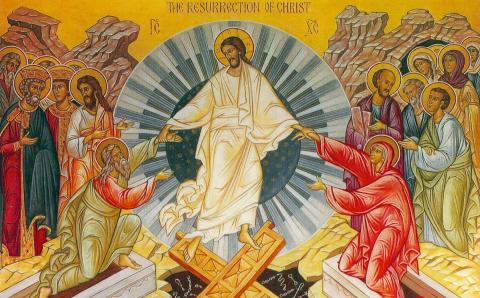Shunned
I want to commend you for publishing this man’s courageous submission (“Shunned: A Call to Restorative Grace,” Dec. 2019). It is a much-needed topic and hopefully it will stimulate a needed discussion as we wrestle with the question “How does the family of God respond to such an issue?” That is (each church’s) challenge as they wrestle with the question “What is God calling us to do?” But know God also gives us some assurances as well as his guidance. “I am with you” (Matt. 28:8) comes to mind. So do splinters and planks (Matt. 7:1-5). My sense is that somewhere in the wrestling, the topic of forgiveness will come up. And maybe grace. But know also that at the end of any such process, to experience healing, either individually or as a church, is to stand on holy ground.
Ron Straayer // South Windsor, Conn.
Christmas Celebrations
Perhaps one way to properly celebrate Christmas (“Pagans, Puritans, and Putting Christ Back in Christmas,” Dec. 2019) is to become more traditional. The Spanish tradition is to celebrate gift giving on Epiphany, Jan. 6. Christmas trees are free on Dec. 26, and there are great discounts on wrapping paper. But more importantly, Christmas returns to a Christian holy day. Or we could take up the traditional Dutch tradition of St. Nicholas Day and give gifts on Dec. 6. After all the Black Friday sales and Cyber Monday, gifts would be cheap and the Christmas tree would be fresh. Either way, we could celebrate on Dec. 6 or Jan. 6 and worship on Dec. 25.
Glenn Palmers // Norfolk, Va.
Trusting the Bible
There is a lost-ness in the church today that is demonstrated by what was left out in Mary Hulst’s article, “How Can We Trust the Bible?” (Jan. 2020). I fear we place our trust on what we value and the various things and experiences we read into or about the Bible. However, the Bible and Christianity stand out not only because they are historically reliable and testable, but because they stand on Christ’s resurrection. As 1 Cor. 15 declares, if Christ has not risen, we believe in vain. The tomb is empty! Furthermore, they are God-breathed, uniting the texts, authors, and millennia under the authorship of God. The Reformation happened as Christians read the Bible for themselves and were convicted by the truth in its pages. Are we reading our Bibles?
Christina Schipper // Waterloo, Ont.
Pulling TULIPs
Many years ago when I was elected as an elder, my father, who served many terms as an elder, gave me five pamphlets written by Rev. Peter Eldersveld, minister of “The Back to God Hour.” Each one was an explanation of the five points of Calvinism: TULIP. I used and made reference to them for many years. I also have difficulty abandoning this acronym that has served us so well for decades in our teaching of biblical truths. When I read words to describe TULIP such as “problematic,” “poorly summarized,” “misunderstood,” “misleading,” “a distorted impression,” “unhelpful,” and “misused,” as written by Prof. McDonald, it saddens me. I, for one, am not ready to join Prof. McDonald in pulling up TULIPs from our theological garden. Let us all instead spend our time and energy to uproot the sin and evil that tend to creep into our lives and the life of the church rather than uprooting the faith of our fathers.
Bob Van Soelen // Sully, Iowa
Membership Matters
I liked the answer given regarding why church membership is important in the February 2020 “Big Questions” section but wanted to add one more reason: Membership helps keep people from falling through the cracks. When I was a deacon, having names on paper helped us gauge whom we served as a church, and standard information given along with membership (phone, address, email, etc.) assists both congregants and leadership in connecting easily so that we can support one another. Finally, when members on a list stop coming to services, the church is more likely to notice. When guests come and go, it’s harder to tell and even more difficult to come alongside them when they need it. To some, membership may sound like fetters preventing God’s spirit from moving freely, but I’d argue it’s more akin to the stem of a vine that we connect ourselves to, just as abundant life and freedom comes from our connection to Christ, the true vine.
Darrin Matter // Blaine, Wash.
Preaching About the Environment
Thanks, Rolf, for your insights into preaching on contemporary issues such as the environment (“Big Questions,” Jan. 2020). To preach occasionally on the environment and its general care is one thing. But if ministers get too specific as to a course of action, they may be overstepping their bounds and into territory where they have little expertise. It would be like telling a congregation which political candidate to vote for, which would be wrong too. But at the same time this inquirer seems a little narrow in his understanding of the Bible. Certainly the Bible addresses more than the “saving grace of Jesus,” as he suggests.
Roger Gelwicks // online comment
Christian Zionism
I appreciate the clarity and depth of this article (“Why I’m Not A Christian Zionist,” Jan. 2020). Gary Burge has done a masterful job of describing the biblical trajectory of God’s promise through Adam, Abraham, Moses and its fulfillment in Jesus the Christ. His attention to the dangers of subsuming faith into partisan politics is excellent! We’re called to discern as citizens of the kingdom, a place where God doesn’t play favorites.
William Delleman // online comment








